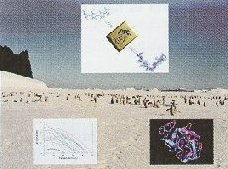'Cold-loving' enzymes useful in many ways
The enzymes which domestic washing products and industrial applications currently use work best at warm to hot temperatures. However, many biotechnological applications require much lower temperatures, typically that of cold water. Psychrophilic (cold-loving) bacteria are a potential source of such cold-active enzymes and these enzymes have enormous commercial potential. New bacteria isolated from the Alps and Antarctica provided the enzymes for COLDZYME's research. These included alpha-amylase, which digests starch and dehydrogenases, which oxidise specific substrates. The relevant gene was cloned and then used to produce large amounts of the enzyme protein for crystallisation and structural determinations. This enabled the basis of the cold-activity of these enzymes to be explained. Knowledge of the gene sequence allowed mutants with improved thermal stability and activity to be engineered, including an enzyme with better properties in relation to cold-water washing. A prototype of a cold-active sensor with potential applications in cold-water monitoring has also been developed. The results illustrate the potential of cold-active enzymes in a range of novel biotechnologies, both industrial and domestic, including biopharmaceuticals, environmental monitoring, and washing powder.







